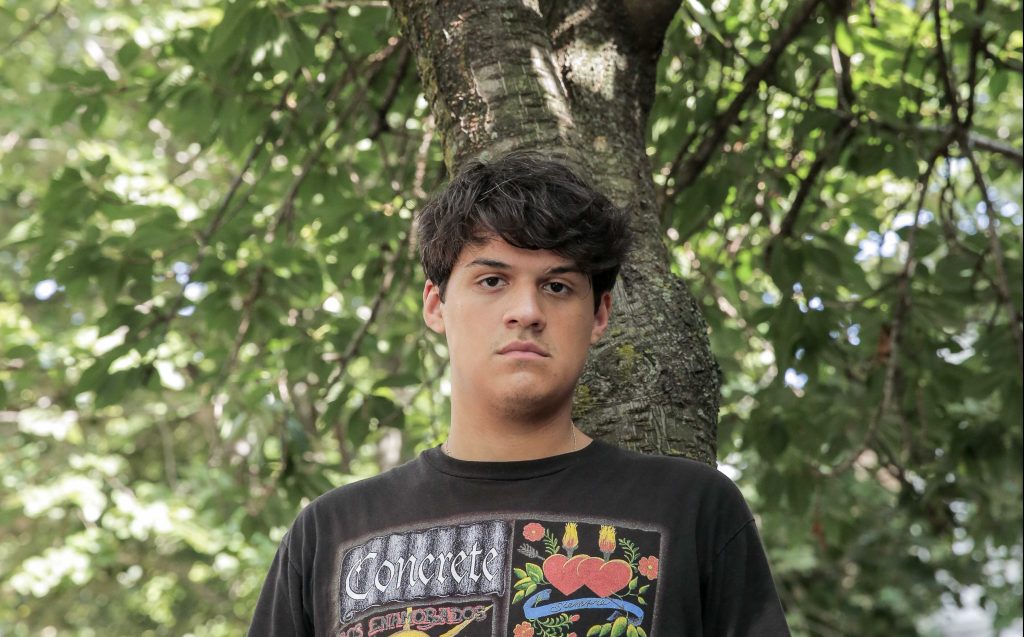The town of Hobart, Indiana probably doesn’t evoke much glamour when you hear its name. The Midwestern city’s Wikipedia page doesn’t boast a particularly poppin’ “Notable People” section either, but it’s fair to say there’s a new contender waiting to claim his rightful spot on the list. 21-year-old Chicano singer-songwriter Omar Apollo describes his hometown of Hobart as quiet – mostly farmland and cornfields. But within the confines of this modest city, the ascendant artist has crafted his sound through his upbringing in the church, along with some help from YouTube and a very particular Disney Channel Original Movie. Part of a burgeoning movement of young Chicano musicians, Omar Apollo was once just a kid named Omar Velasco from a small town in the Great Plains. But with his raw sound and homegrown soul, he’s quickly becoming one of the scene’s most promising talents.
The soundtrack to Velasco’s youth combined his mom’s affinity for Los Panchos, Estela Núñez, and Pedro Infante, along with his dad’s fondness for The Beatles, despite the language barrier. Not unlike most immigrant parents, Velasco’s mother and father, who hail from Jalisco and Guadalajara, Mexico, found community in their local church and accordingly integrated Omar. As a young altar boy, Velasco would attend mass twice every Sunday. At around 11 or 12 years old, a guitar was at the top of young Omar’s Christmas list, but it wasn’t all miracles when his wish came true and his parents gifted him an electric guitar. “They were like, ‘Here,’ and I was like, ‘Oh cool, but how do I play this?’” With no amp or even an instructional DVD to get started, Velasco’s electric guitar was virtually useless, but that wouldn’t allow the small-town brown boy from losing interest.
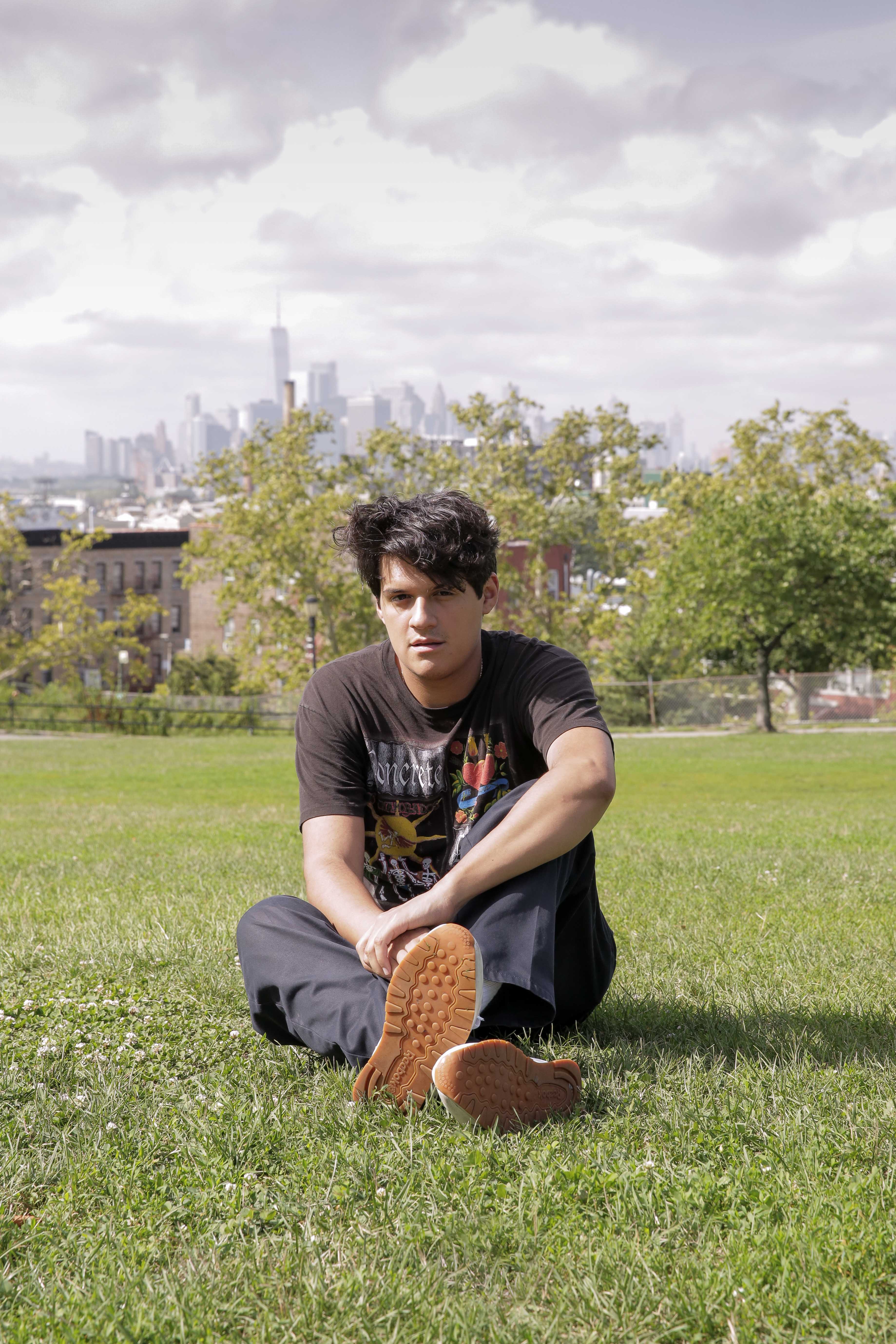
He researched his options and realized that an acoustic guitar was what he needed. As Velasco tells it, they “went to the pawn shop, traded [the electric guitar] in, [and] got a $40 acoustic one. Then I just went on YouTube and…would see people post covers, and I would try to copy their fingers, just to see what it was [they were doing].” He explains. “It was Camp Rock covers. I was like 12, bro!” he laughs. “I deadass was on that, cause I ain’t know nothing else besides TV — we had a radio but I ain’t have no Wi-Fi or nothing yet, so it was just what was on the TV.” Fortunately, Velasco’s talent got a boost from a visiting uncle. “My Tío Augustine, he knew how to play three chords…E minor, A and D. I remember I would go to sleep playing that.” After those three chords, Velasco continued to push himself, taking his guitar everywhere he went, always riding with it in his mom’s van.
Velasco’s skills for picking up chords from watching covers wasn’t reserved to the confines of his bedroom walls. “My mom would make me play in church — I didn’t even have music in front of me, l just had the other dude who was playing, and I would just copy what he would do.” Omar’s stint playing in the church would eventually hit a wall when he became frustrated with the depressingly traditional music he was asked to play. “They never listened to me… I had all these ideas; I had arrangements; I had transcribed some shit and made it different, made it prettier.”
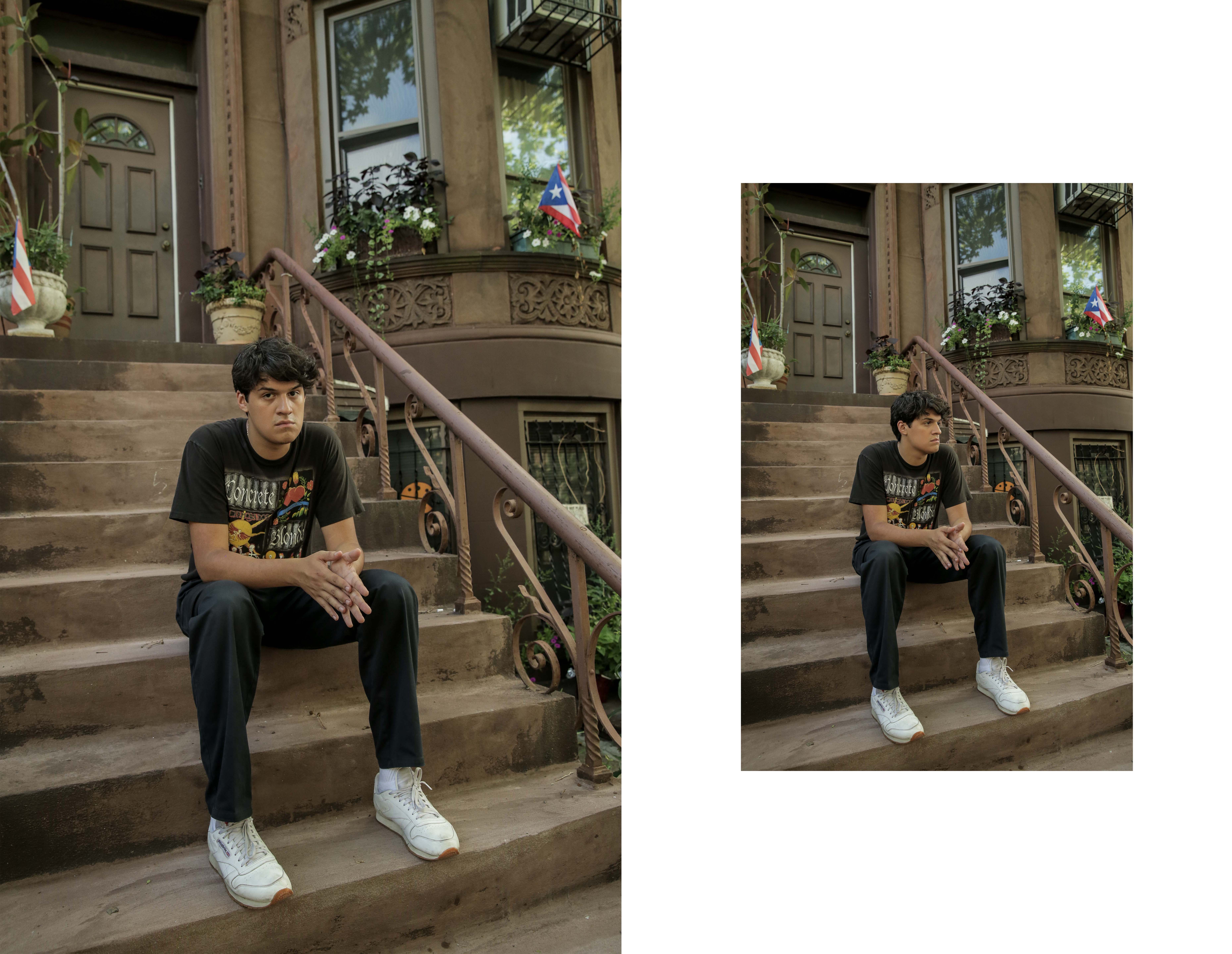
But Velasco briefly stopped playing at 15 after he got his guitar — at that point a much nicer black Alvarez model he had saved up for – jacked out of the back of his whip. Feeling duped by this repo, he decided he was done with the instrument. Velasco might have been frustrated with playing guitar at this point, but not all creative endeavors were squandered. Omar Velasco was also dancing at the time, mostly hip-hop and freestyle music.“I was just in the cut you know..[in] the quinceañera circles just killing it.”
The momentum for Omar and his peers is only growing.
In his junior and senior year, Velasco grinded at his local McDonald’s by day, heavy on SoundCloud deep dives by night. Discovering artists like The Internet, Daniel Caesar, and Smino, Velasco recalls a burst of inspiration. “I found all this music and then I was like, ‘Damn, I was pretty fire at guitar when I was younger; I should just go buy another one,’ so I went to the pawn shop [and] bought a little $50 joint.” Money didn’t come easy for Velasco, as he made under $150 for two weeks’ work at Mickey D’s, but between commanding the register and breaking down boxes in the back, he managed to save enough money for a laptop that he would use to make beats. Diving into production on Logic Pro, Velasco became committed to teaching himself how to sing, playing clips of reference tracks for friends in history class. The first of Omar Apollo’s songs that would be uploaded online was over a “Chance The Rapper type beat” he pulled off YouTube — a track he promises we’ll never hear.
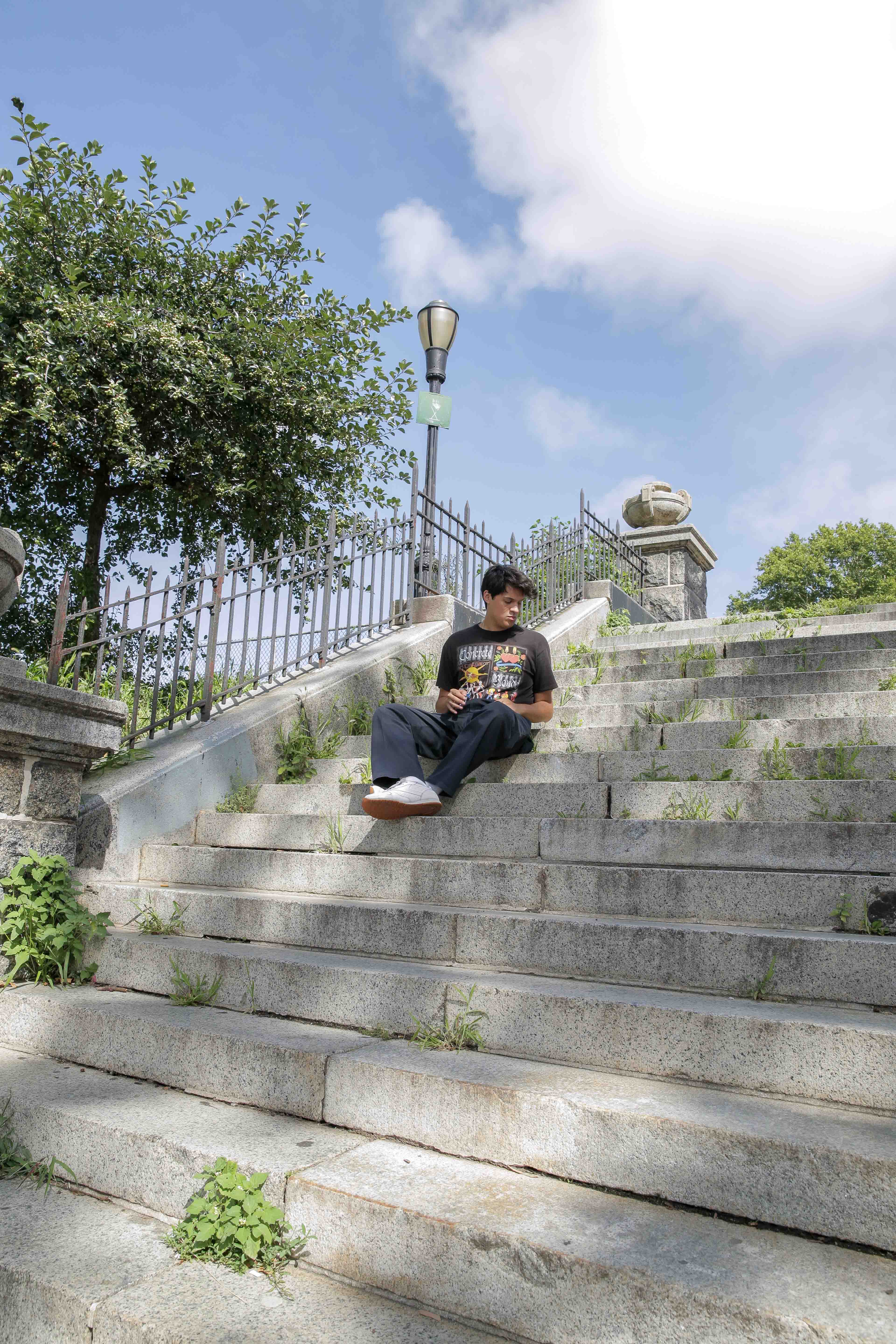
Omar Apollo’s initial DIY approach is only a few years removed from the polished singer-songwriter we know today, but Velasco always had a clear understanding of his potential as an artist. “I knew it wasn’t good then, but I knew it was gonna be [good], you know? and I didn’t care, cause I knew it was good enough for me to put out. I was like, ‘Whatever, 400 plays? Who cares? I like it.’” Omar Apollo understood the concept of growth. His determination wasn’t deterred by low play counts or the baseless opinion of his peers.
A little over a year ago, Velasco was just shy of 3,000 followers on SoundCloud. One of the homies made the suggestion he should upload his music onto Spotify. The only problem was the fee for an artist page on the streaming service. “I just didn’t have $30. I was struggling, but he was like, ‘Bro I got you.’” Omar posted on Instagram and tweeted letting his followers know his track “Ugotme” was up on Spotify, but unbeknownst to him, the song was added to a Spotify editorial playlist and blew up overnight. “The next day it had like 20,000 or like 30,000 plays, and it just started going up from there.”
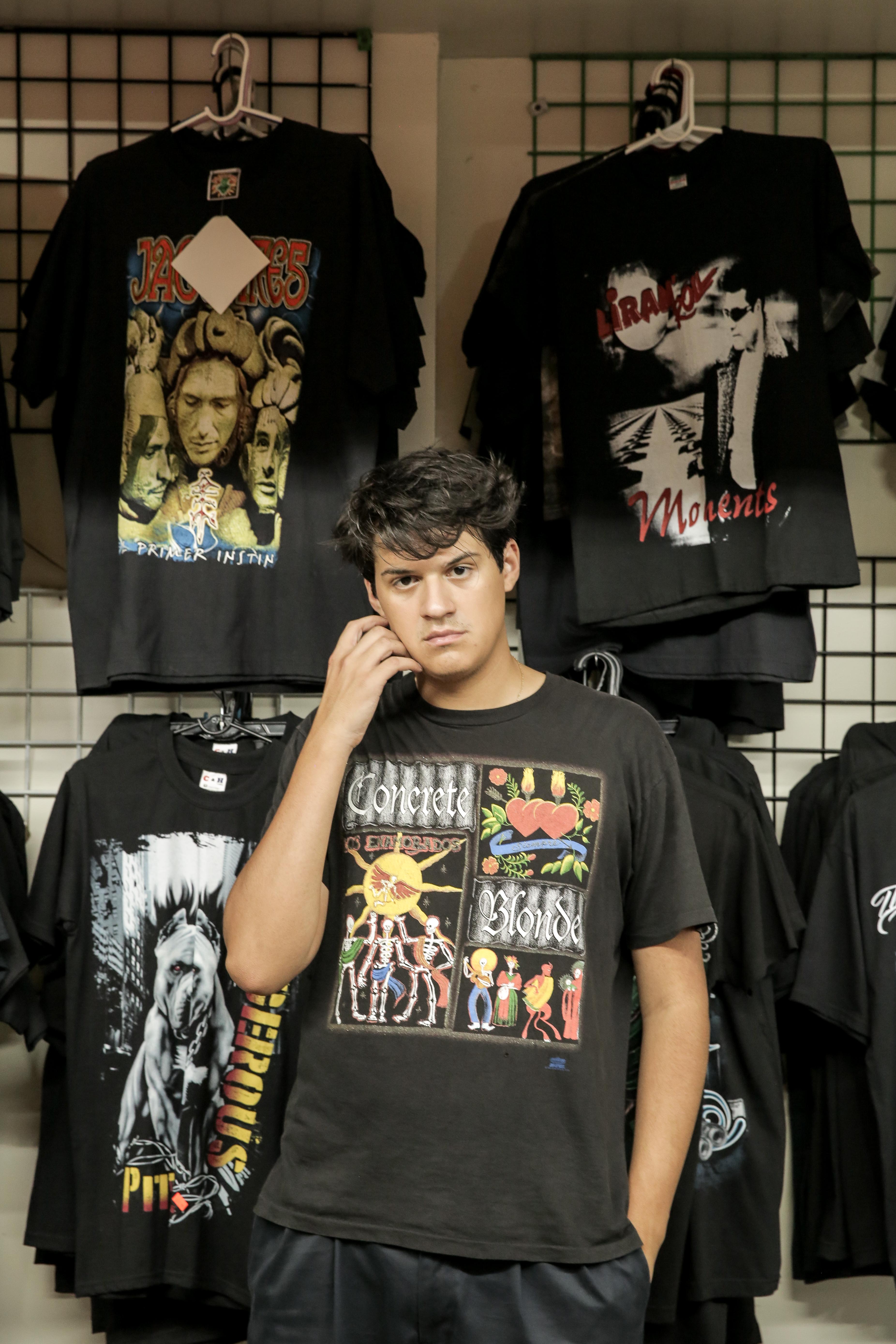
Things had picked up come January, and it was time to put together a project. By July 2017, Omar had found management, connecting with Dylan Shanks through Twitter. They decide to work on an EP, and after some back and forth on a timeline for the project, a deadline was set. Velasco didn’t dive into the project looking to make a coherent body of work, instead opting for a glossy release of all the sounds he had been working on over the past few months.
With no consistent theme in mind, recording what would come to be Stereo was just as organic as Omar Apollo’s journey. The sessions for the album took place between his attic in Indiana — where he also lived with four roommates — and in LA alongside his manager Dylan Shanks, all while still working at Guitar Center. Streams were picking up, and the Hobart native felt like he was ready to fully commit himself to his craft, even at the risk of fucking up his steady money.
Omar Apollo’s Indiana attic sessions would materialize as Stereo, a seven-track project that reworked of some of Velasco’s earlier singles, along with brand new songs that only further established the 21-year-old brown boy’s bravado and talent. From slick R&B grooves to heartfelt, bilingual indie pop, the EP serves a testament to Velasco’s restlessness, his commitment to creating an unpredictable sound, and his recurring confrontations with boredom. “That’s my greatest fear as an artist. I’m not trying make the same shit, mostly because I get bored so fucking fast,” he says. This is evident on tracks like “Hijo de Su Madre,” a more apparent deviation from Apollo’s softer R&B sounds, where he dives into playful bars and an airy falsetto hook over a disco-inspired beat. Velasco says he made the song with no intent to release it, until he showed it to his manager who was blown away. The track later got a major co-sign in an episode of HBO’s Insecure last season.
Just a few years ago, all that he faced was fulfilling family expectations as the child of immigrants.
It’s a surreal experience for Omar Apollo to be steadily touring, recording a new EP, and living off of his music, when just a few years ago, all that he faced was fulfilling family expectations as the child of immigrants, especially the pressure to take advantage of the education system here in the U.S. Velasco understood the importance of this, but college just wasn’t something his attention span was built for – he dropped out only two weeks after enrolling.
What his mom initially believed to be just a hobby is now supporting Velasco and his fam. He recognizes the blessing he has being able to take care of his parents, who spent so much of their lives working physically demanding jobs just to provide for their children. “Sometimes they wouldn’t eat to make us eat. You know, like frijoles everyday in the morning. I never saw it like that; it was just food…to be able to give back is an insane feeling. It makes me want to work harder more than anything else. Obviously I’m very passionate about music and I love music, but now I’m like, ‘Damn, I gotta take care of them.’” From his humble church beginnings to saving up what money he could working fast food jobs, Velasco really made it happen — but it’s clear he isn’t gassed up by any of his newfound attention. He’s still the same dude he’s always been on Twitter, heavy in his feelings and heavy on these memes. More than anything, he’s just grateful to record music that soundtracks the everyday moments of life. “I’m trying to make a bunch of different type of [music] that you can [listen to] for any mood. You can throw me on if you’re doing anything: cleaning dishes, making arracheras, or whatever, really,” he says. Velasco’s hometown church hit him up to come back and perform the original renditions they snubbed, and Indiana peers who tried to clown him back in the day now front like they’ve always been down with his music.
And as part of this new generation of independent Chicano musicians, the momentum for Omar and his peers is only growing. Though these artists dabble in distinct sounds and styles, there’s a sense of nostalgia and emotion that unites them. It’s only a matter of time until they take the music business into their own hands and make their mark on an industry that’s long been hostile towards them.



